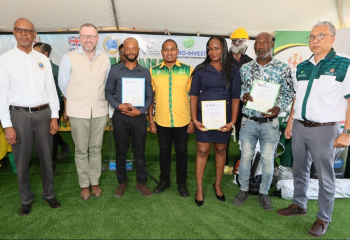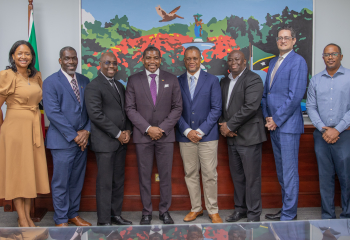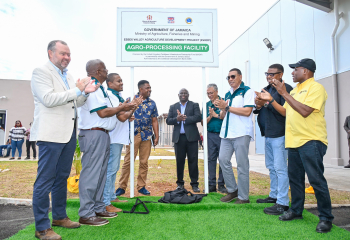Caribbean Must “Raise Growth Potential through Deep Productivity Enhancing Reforms while Strengthening Resilience” Urges IMF Deputy Managing Director Nigel Clarke at CDB Lecture
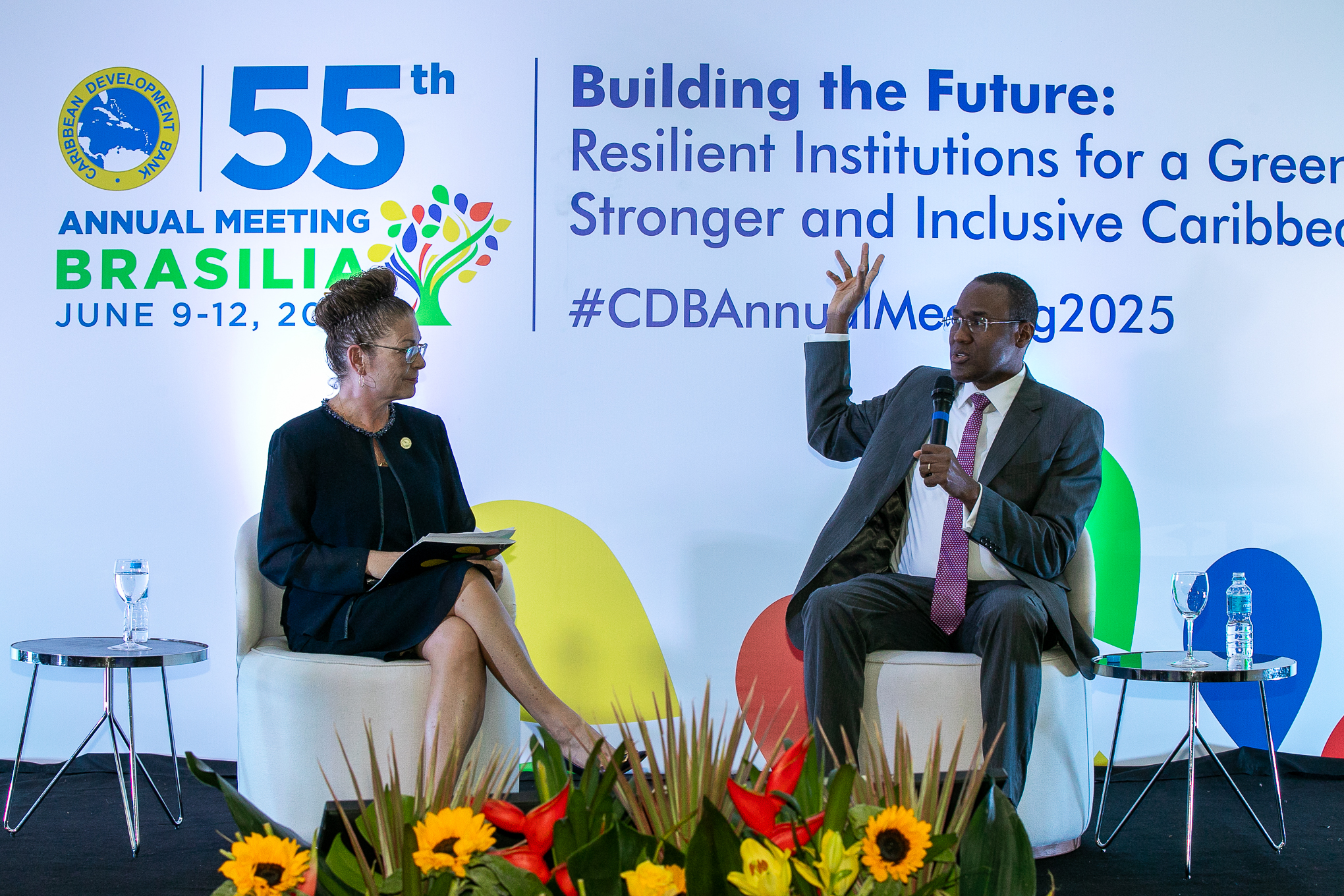
The Caribbean region must urgently prioritise boosting growth potential through productivity enhancing reforms while simultaneously building resilience against economic shocks and natural disasters. This imperative was highlighted by Dr. Nigel Clarke, Deputy Managing Director of the International Monetary Fund (IMF), during his keynote address at the 25th William G. Demas Memorial Lecture.
Hosted by the Caribbean Development Bank (CDB) on June 10, 2025, during its 55th Annual Meeting in Brasilia, the lecture, themed "The Caribbean Challenge: Fostering Growth and Resilience Amidst Global Uncertainty," drew an influential audience of Caribbean policymakers, private sector stakeholders, and global development experts. Dr. Clarke underscored the critical need to tackle these challenges within the rapidly evolving global landscape.
“At a moment of exceptional uncertainty in the global economy, these tasks become even harder, and our efforts require even more urgency,” Dr. Clarke said. He cited the IMF’s downgraded global growth projections published in April 2025, which revealed reduced growth forecasts of 2.8 percent for 2025 and 3.0 percent for 2026—the lowest levels in nearly two decades, excluding the pandemic. “Simply put, new uncertainties on top of already weak global economic prospects make for a very challenging global growth backdrop,” he said. Dr. Clarke further advised that the IMF has assessed that risks to global financial stability have increased significantly which adds to pre-existing Caribbean vulnerabilities.
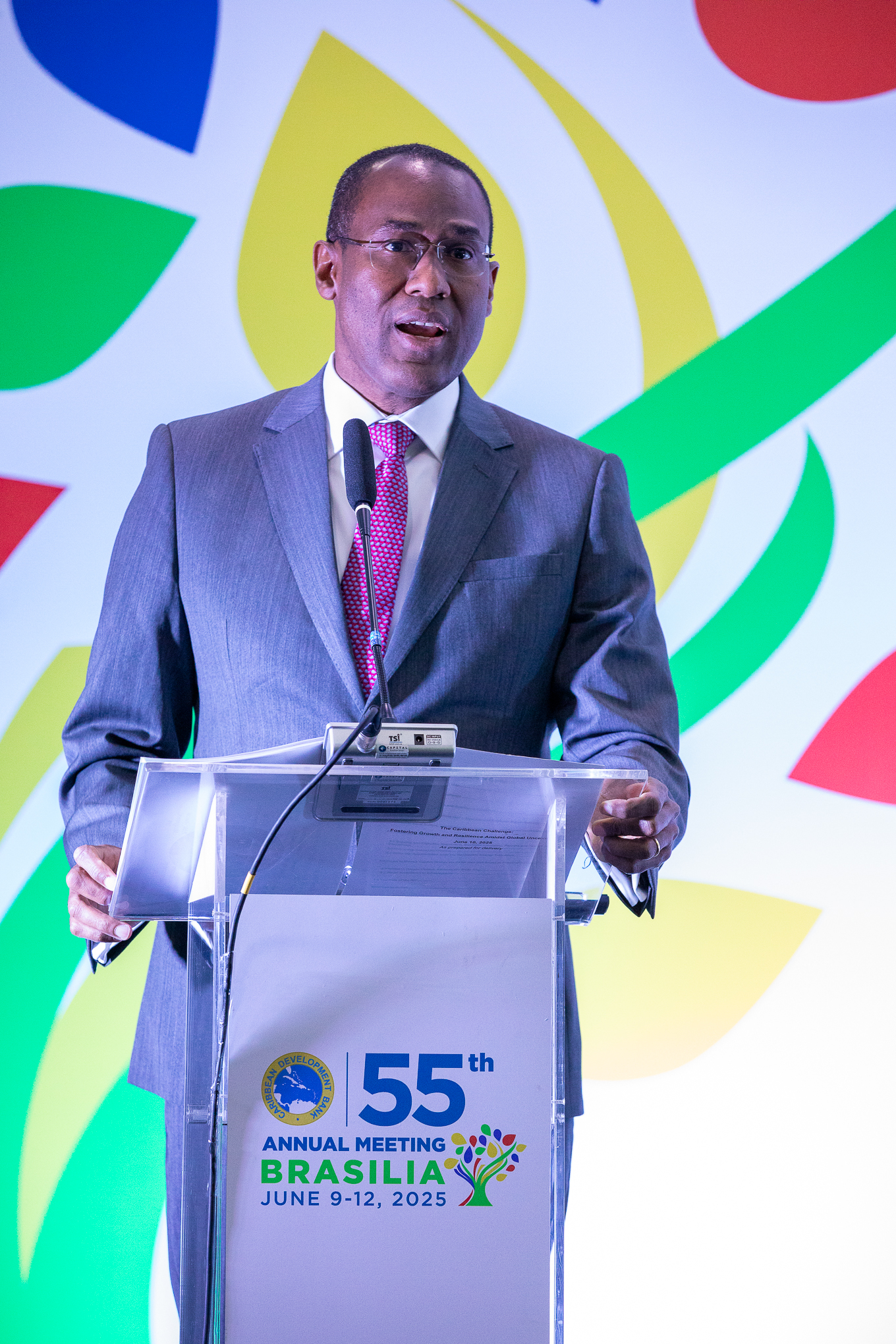
Dr. Clarke presented analysis showing that Caribbean growth potential has halved in the last two decades as compared with the previous two. “This presents the Caribbean with an aggravated challenge – to reverse its trend of slower growth at a time when global growth is also declining.”
Dr. Clarke noted, however, that “the (Caribbean’s) growth challenge is not a mystery.” He added that the long-term decline in Caribbean growth potential can be decomposed into its constituent factors: steep declines in productivity growth, physical and human capital, before pointing out that “the Caribbean’s productivity growth decline to almost zero is the root of the Caribbean’s growth challenge.” He also cautioned that “there is no magic solution, there is no quick fix. Great danger exists if we believe that the growth challenge can be addressed with quick fixes.”
He recommended policies to maintain and entrench macro-economic stability and resilience while, at the same time, “decisively and comprehensively addressing the factors that raise growth potential” by engaging in deep structural reforms that improve total factor productivity while boosting investment in human and physical capital.
“Suffice it to say, as they strive toward growing and resilient economies, policymakers in the Caribbean are facing a complex set of old and new challenges,” he said. “But challenging times can also be times of opportunity, action, and resolve. And—as everyone in this room is aware—many efforts in the right direction are already underway.”
Dr. Clarke outlined policy priorities for raising the region’s growth potential including slashing the burdensome complexity of licensing; permitting and regulatory processes; digitalizing Caribbean societies; seizing opportunities from the renewable energy transition to dramatically lower electricity costs; improving access to finance; investing in education and skills training with ambition, radically improving outcomes, while addressing skills mismatches; and redoubling efforts to improve physical capital by building strong pipelines of public private infrastructure projects with multilateral assistance.
The IMF Deputy Managing Director stressed that fiscal resilience is important. “Our advice to policymakers on how to rebuild buffers and strengthen frameworks is straightforward: mobilise tax revenue, spend wisely, and plan ahead,” he said. He noted that the IMF works in service of its 191 member states, with country specific policy recommendations, drawing on an unparalleled wealth of accumulated global experience and encouraged the region to “strategically maximise their use of the IMF and what it has to offer.”
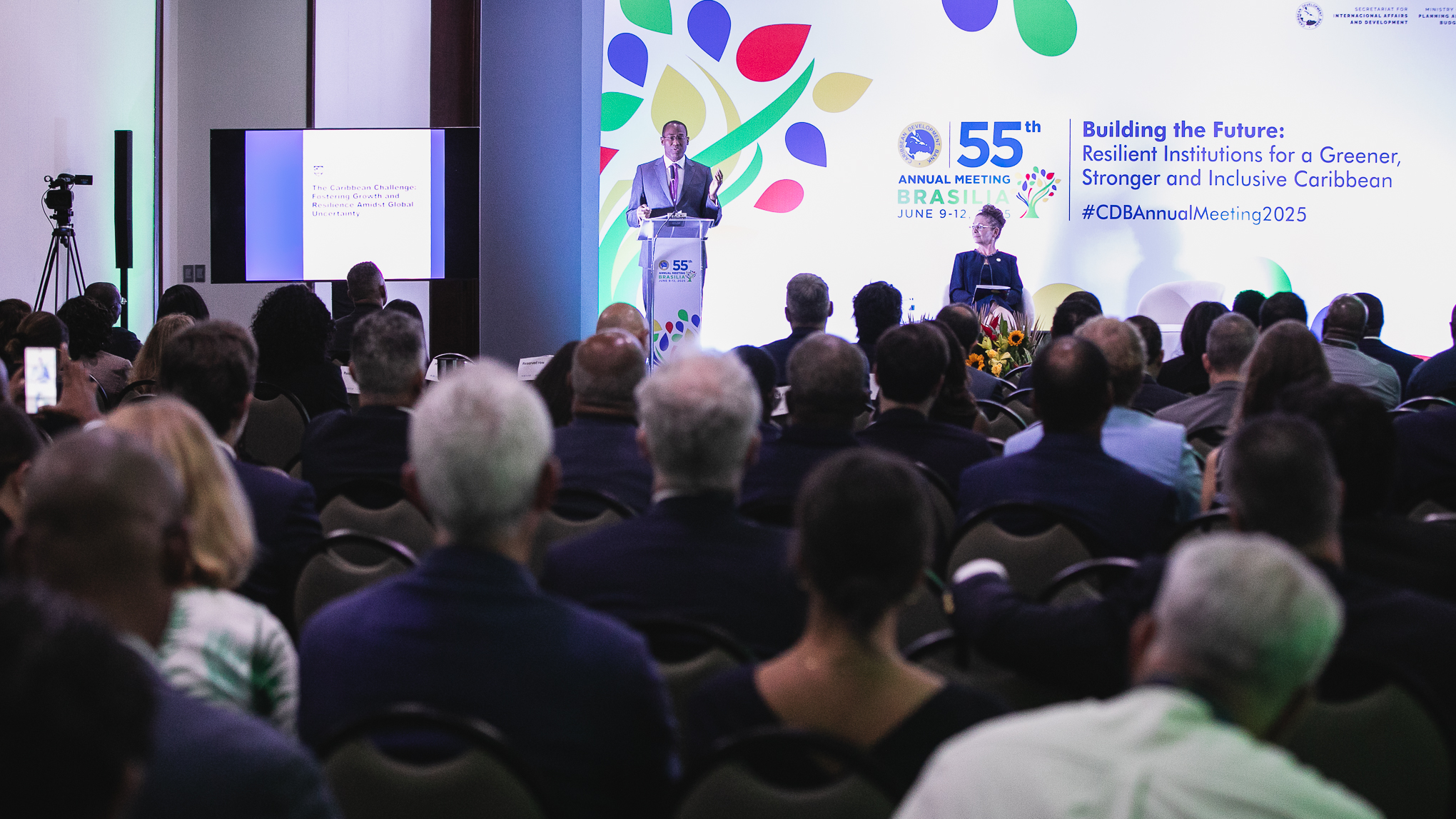
He closed the address with a clarion call to Caribbean countries: “It is imperative that Caribbean countries work to put their macro-fiscal houses in order while engaging in deep and meaningful structural reforms to increase the growth potential of Caribbean economies. You hold the keys to the future of the region. You have the tools, the talent, and the tenacity to chart a new path for growth and resilience.”
The William G. Demas Memorial Lecture is a flagship event on CDB’s Annual Meeting agenda. Other key activities include two knowledge-sharing seminars, one entitled “Accelerating Project Implementation to Reduce Poverty” on June 11 at 4:00 PM (UTC-3) and another on “Fintech: Finding the Balance Between Disruption and Creation” which is scheduled for June 12 at 9:15 AM (UTC-3).
Read the full speech
Review the presentation
